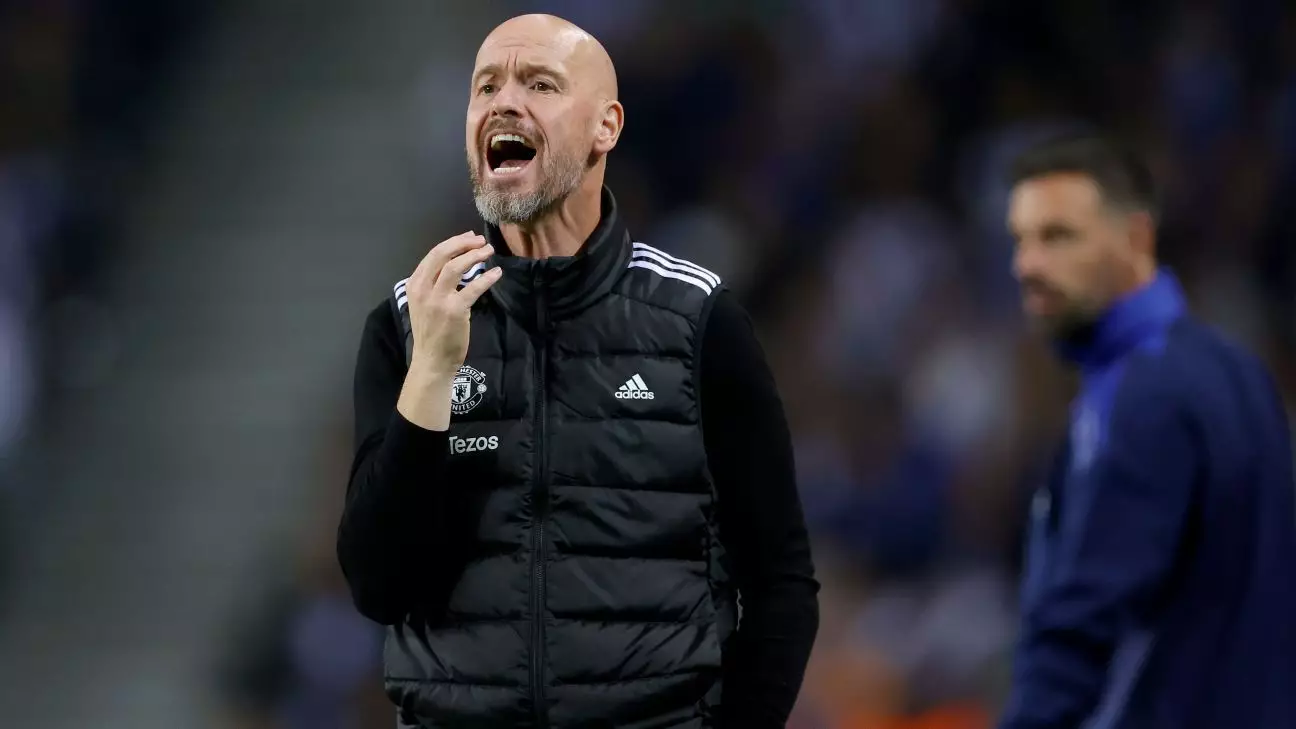The coaching responsibilities at a club like Manchester United come with immense pressure and high expectations, particularly for Erik ten Hag. Recently, as his team struggles on the pitch, he finds himself in a precarious situation where calls for immediate results clash with his request for time to develop the squad. This dichotomy exemplifies the challenges inherent in high-level football management.
The pressure on Ten Hag has escalated dramatically following a disheartening draw against FC Porto, in which his team squandered a two-goal advantage. This disappointing performance contributed to a four-match winless streak that has left fans and analysts questioning the current trajectory of the team. Ahead of a crucial clash against an in-form Aston Villa, whose recent Champions League victory over Bayern Munich serves as a potent reminder of their capabilities, Ten Hag’s position appears increasingly fragile. The looming question—can he turn the tide?
Every manager understands that football is a results-driven business, yet they often find themselves in a paradoxical situation: the need for immediate outcomes must be balanced with the necessities of development and integration. Ten Hag’s comments reveal a frank acknowledgment of this uncomfortable truth, as he pleaded for patience while recognizing that history tells him time is a luxury few managers possess.
A significant aspect of Ten Hag’s strategy at Manchester United involves the infusion of new talent aimed at bolstering the team’s performance. However, as witnessed with summer signing Manuel Ugarte, the integration process is far from seamless. Ugarte’s £50 million move from Paris Saint-Germain has not yielded the immediate impact many anticipated. In fact, Ten Hag’s decision to exclude Ugarte from the lineup against Porto suggests a cautious approach, emphasizing that the player’s acclimatization to both the game model and the physical demands of the Premier League will require considerable time.
Managing new arrivals is one of the considerable challenges Ten Hag faces. Football clubs are often impatient, expecting flashy signings to translate into instant success. Ten Hag’s candid remarks about Ugarte’s adjustment underscore a broader theme of transitional phases that all teams must navigate. He asserts that various positions within the squad will also necessitate time for players to adapt—whether it’s mastering the tactical vision or gelling with fellow teammates.
Fortunately for Ten Hag, he will have the services of captain Bruno Fernandes available following an overturned red card, which adds a vital dimension to the squad’s capabilities at a critical time. Moreover, the potential return of promising young midfielder Kobbie Mainoo offers a glimmer of hope amid the uncertainty. Ten Hag’s cautious approach in managing players recovering from injury illustrates the need for strategic decision-making, as rushing players back into action can lead to further setbacks.
It is evident that as Ten Hag attempts to reignite Manchester United’s fortunes, he must flare a delicate balancing act between nurturing talent, integrating new signings, and securing immediate results. He has emphasized the collective responsibility, indicating that ownership, leadership, staff, and players are all part of this challenging equation.
Looking Ahead
Ultimately, Ten Hag’s plea for patience may fall on deaf ears if results do not start to improve. Football is rarely forgiving regarding managerial changes, particularly at a club as storied and ambitious as Manchester United. Observers will be paying close attention to whether Ten Hag can effectively combine the integration of talent with an immediate impact on performance, particularly in the upcoming match against Aston Villa.
As the tension mounts, the narrative surrounding Ten Hag’s management will continue to evolve. Will he find a way to stabilize the ship and deliver results while fostering a cohesive unit? Only time will tell, but one thing is certain: the road ahead is fraught with challenges, and the need for both patience and progress has never been more pressing.
